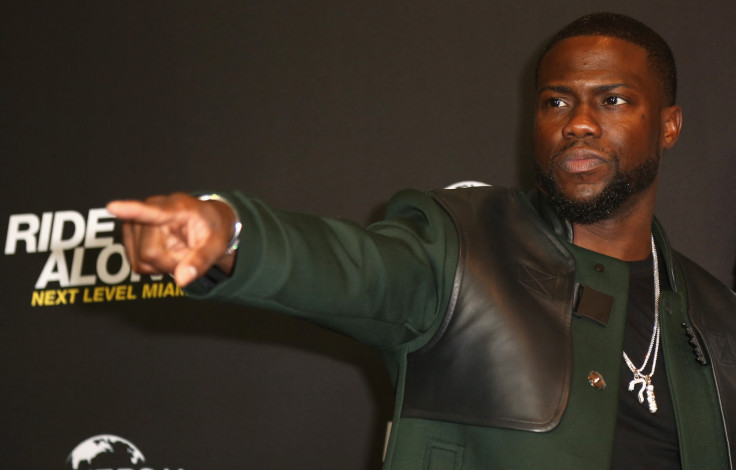Why January Is A Cash Cow For Kevin Hart, Kevin James And A Bunch Of Horror Flicks

LOS ANGELES — As of this week, the biggest domestic movie ever, "Star Wars: The Force Awakens," is no longer tops the U.S. box office. What finally knocked it off? "Ride Along 2," a buddy-cop comedy starring Ice Cube and Kevin Hart.
But that's pretty typical for January, a time of year when Hollywood releases a bunch of formulaic comedies and horror flicks to increasingly receptive audiences. The original "Ride Along," which came out on the Friday preceding Martin Luther King Jr. Day two years ago, had the second best January debut at $41.5 million.
And the "Ride Along" franchise is just one example of a film property that may not draw a lot of critical acclaim — neither movie could break 17 percent on movie review aggregator Rotten Tomatoes — but has found a hugely profitable niche premiering in January, one of Hollywood's traditional "dump months."
With awards season being a year away, and with winter weather and the financial aftermath of holiday shopping likely reducing some of the demand for movie tickets, studios tend to shy away from releasing their bigger budget, more ambitious films in the winter months. There's also competition from the National Football League playoffs. According to data compiled by BoxOfficeMojo, the first quarter has generated the least amount of box office revenue in every year since 1982.
But there are still plenty of opportunities for those willing to brave Hollywood's dead zone. Last January's domestic box office brought in more than $400 million, and comedies are increasingly taking advantage of the lull as a way of standing out. Given that schools are usually closed for a few days after the new year and take MLK Day off, comedies like "Ride Along" and the Kevin James vehicle "Paul Blart: Mall Cop" seem to align with the January audience. And that's been a successful formula — the original "Ride Along" brought in nearly $135 million in the United States, and more than $150 million worldwide, on a production budget of just $25 million.
And comedy isn't the only genre that's been a January cash cow — especially lately. Horror films, which also tend not to be seeking award nominations and are also targeted at the young adult crowd, have also performed well when released at that time of year. The 2008 horror movie "Cloverfield" still claims the third-best opening weekend haul of all time for a movie premiering in January, and last year's "Taken 3" is fifth.
The month's all-time January opening weekend record holder, last year's "American Sniper," reeled in nearly $90 million domestically on its way to a $350 million total gross. And the Leonardo DiCaprio historical adventure epic "The Revenant" actually beat "Ride Along 2" with a $38.9 million opening weekend, although it was released a week too soon to dethrone "Star Wars."
It's understandable that movies counting on Oscar buzz to boost their box office — which can have a real effect — would opt not to officially debut in theaters after the first of the year. That would mean they wouldn’t be eligible for any awards until the following year — plenty of time to be overlooked and forgotten. And that's why some of the more critically acclaimed movies in recent years that opened widely in January, such as Best Picture winners "American Sniper" and "Zero Dark Thirty," which had limited releases the previous December to qualify for the awards season when the film remained fresh.
But there are plenty of backers of films with little to no Oscar ambitions happy to leave the holidays to the trophy chasers and cash in on the January crowd. So this time next year, when Oscar buzz builds around actors and actresses starring in obscure historical dramas (and hopefully not, once again, on the lack of nominees of color), don't be surprised if Kevin James' dancing ends up atop the charts.
© Copyright IBTimes 2025. All rights reserved.





















